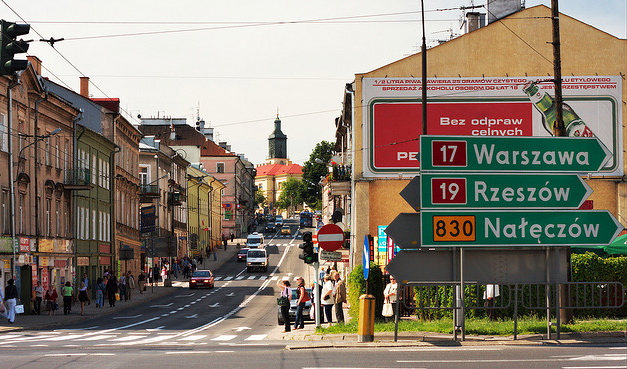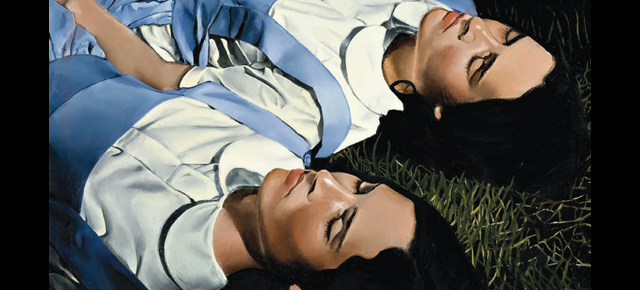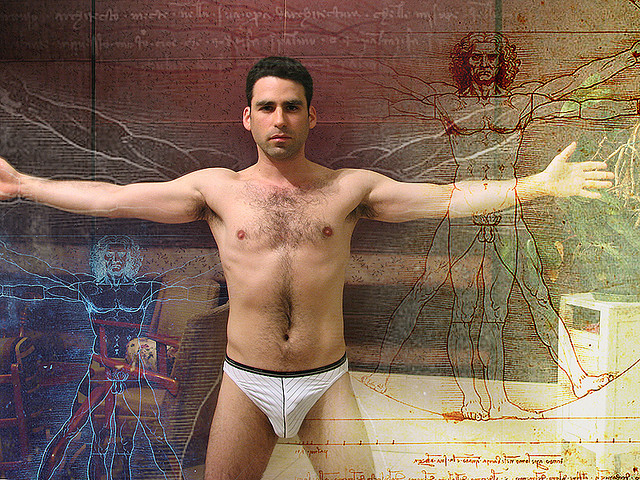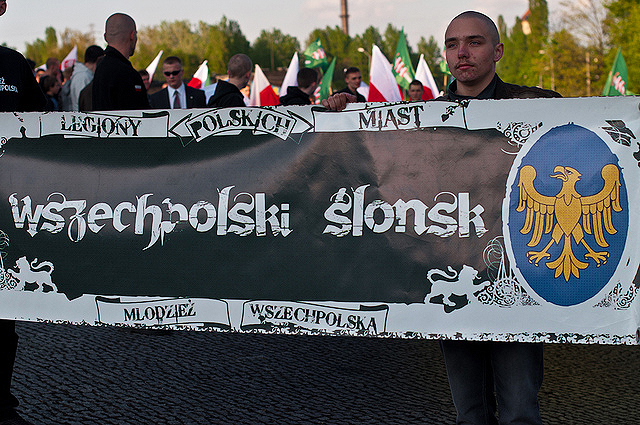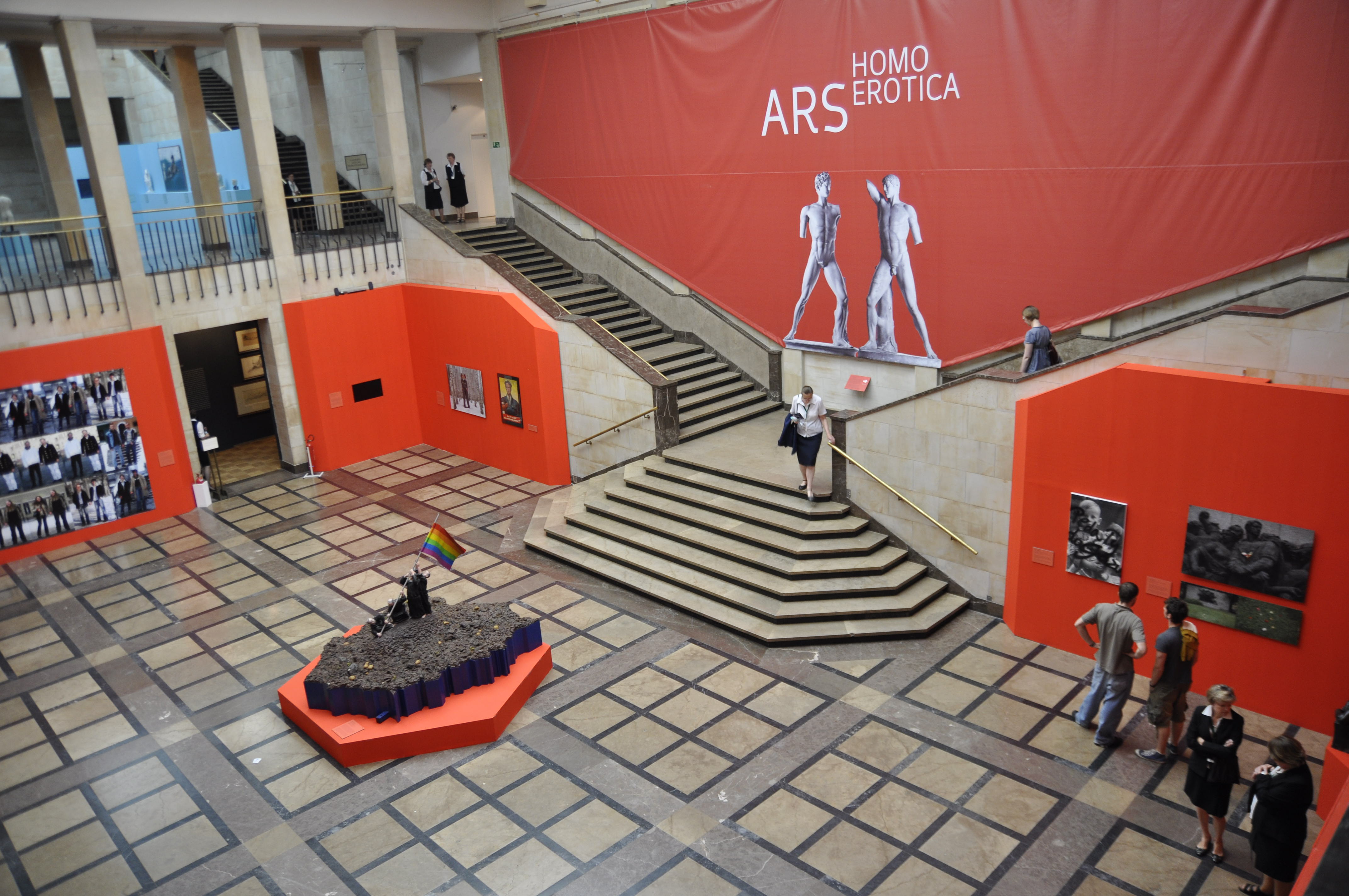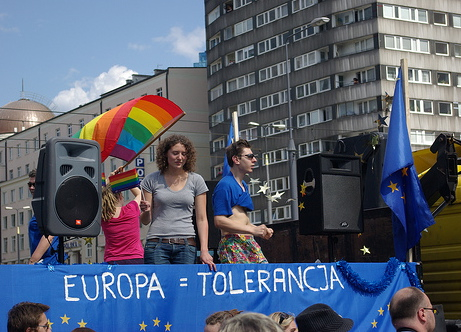The world is becoming hostage to fascism. Those who – in word and deed – destroy democracy are gaining ground in the U.S., France, Russia, Turkey, Poland, and Hungary. They desire to have our desire in thrall. Not just economy, but libidinal economy, rules supreme. (More…)
Author: Tomasz KitlinskiTomasz Kitlinski is a lecturer in the Department of Philosophy and Sociology, Marie Curie University, Lublin. He is an activist on behalf of labor rights, and the equality of women and minorities in Poland. Tomasz is the author of The Stranger Is within Us (with P. Leszkowicz) and Love and Democracy: Reflections on the Queer Question in Poland. He studied under Julia Kristeva.
Tomasz Kitlinski is a lecturer in the Department of Philosophy and Sociology, Marie Curie University, Lublin. He is an activist on behalf of labor rights, and the equality of women and minorities in Poland. Tomasz is the author of The Stranger Is within Us (with P. Leszkowicz) and Love and Democracy: Reflections on the Queer Question in Poland. He studied under Julia Kristeva.
A new global bromance has begun: Trump, Putin, Orbán, Kaczynski, Johnson. These powers that be, who now control the planet, could not be more xenophobic, anti-Semitic, anti-woman, anti-queer, and ultranationalist. How could we have ever allowed that to happen? We’re all guilty of permitting the rise of the far right all over the world. (More…)
Lublin‘s Studio for Socially Engaged Art, led by Szymon Pietrasiewicz (see At War With the Past) designed a social tolerance campaign using hand-drawn images printed on city bus tickets. These pictures presented Jews, Roma and gays as being accepted by soccer fans of the local football club, Motor Lublin. (More…)
Don’t let Putin fool you. Banishing Pussy Riot to a penal colony allowed the Russian leader to reassert his rule. Democracy be damned. Civil rights, religious freedom, and gender equality from herein would be subject to his purview. The ex-KGB officer’s message wasn’t just aimed at Russia. It was directed at all of Eastern Europe, too. (More…)
At long last, a US president supports same-sex marriage. ‘I think same-sex couples should be able to get married’ Barack Obama told ABC News on Wednesday. That same day, Queen Elizabeth declined to mention it in her address to Parliament – despite promises made by the governing coalition (who had written the Queen’s speech) about pursuing marriage equality legislation. (More…)
“I’m every woman,” sang Whitney Houston. Perhaps. Her vulnerabilities were easy to identify with. Being African American, and closeted, didn’t hurt. Had she overdosed? Was the legacy of slavery the final nail in her coffin? Everything is possible. The sheer number of potential causes was entirely in keeping. (More…)
There’s no need to queer Da Vinci. The homoerotic character of his work has been plain to see for over half a millennia, already. Focusing on his celebration of masculine beauty, the National Gallery’s recent Painter at the Court of Milan show made welcome, if somewhat discreet steps, in acknowledging the Italian artist’s sexuality. (More…)
A Polish court has officially sanctioned two historic symbols linked with fascism and homophobia, the Phalanx and the Celtic cross – zakaz pedalowania [Loose translation: Schwulen verboten/Ban the fags.] From now on, these signs will be legally protected. They are symbols of an ultra-nationalist party, The National Rebirth of Poland, which started as an anti-minority organization in the 1930s. (More…)
Queer exhibitions are not just art shows, but platforms for furthering democracy. They not only foster visibility and equality, but foreground complex images which society conceals from itself. As contemporary art theorists Lois Keidan and Lois Weaver put it, art performs human rights. (More…)
Poland has not turned into Hungary. However, the country’s opposition leader, Jaroslaw Kaczynski, defeated in Sunday’s general election, told reporters on Sunday night that he still hoped to turn Warsaw into a second Budapest. To observers of Polish politics, such statements will hardly be surprising. (More…)


